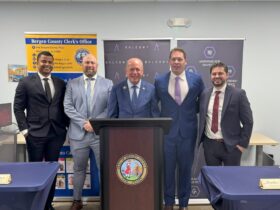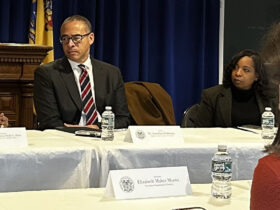With the May tax filing deadline now upon us, many taxpayers are still struggling to fulfill their tax obligations, putting them at risk for penalties and potentially collections activities. The American Institute of CPAs (AICPA) submitted a letter to the Department of the Treasury and the Internal Revenue Service (IRS) urging specific penalty relief measures for millions of taxpayers affected by the COVID-19 pandemic.
Tax practitioners around the country have been concerned with their ability to complete clients’ returns by the May 17 postponed due date due to insurmountable challenges presented by the pandemic. Additionally, communicating with the IRS continues to be increasingly difficult, with unnecessary notices and letters creating anxiety among taxpayers.
“…penalty relief measures that are fair, reasonable and practical would not only mitigate the negative impact of the [pandemic] on taxpayers but also provide fewer touch points with the IRS, thereby alleviating the current struggles that taxpayers, their advisors and the IRS face on a daily basis,” the AICPA says in the letter, signed by Tax Executive Committee Chair Chris Hesse, CPA.
The AICPA recommends the IRS provide the following:
- Underpayment & Late Payment Penalty Relief – Provide taxpayers with targeted relief from both the underpayment of estimated tax penalty and the late payment penalty for the 2020 tax year. AICPA recommends taxpayers receive relief from the underpayment penalty if:
- Taxpayers paid at least 70 percent of the tax due for the current year, or
- Taxpayers paid 70 percent (90 percent if adjusted gross income exceeds $150,000) of the amount of tax shown on their U.S. income tax return for the prior year.
- Taxpayers make a timely request for an extension of time to file their income tax return and pay at least 70 percent of the taxes owed with the request.
- Consideration of Reasonable Cause Requests – Offer a reasonable cause waiver, similar to the first-time abate (FTA) waiver, without impacting the taxpayer’s eligibility for FTA in future tax years. Additionally:
- If a taxpayer qualified for and requested reasonable cause they should not be provided with an FTA waiver.
- The IRS should make it well known that an e-fax alternative to written reasonable cause requests is available.
- Delay in IRS Collections – Discontinue compliance actions until the IRS is prepared to devote the necessary resources for a proper and timely resolution of the matter. At a minimum, halt automatic collections activities of liens and levies for at least 90 days after the May 17 filing deadline.
- Account Holds – Align requests for account holds with the time it takes the IRS to process any penalty abatement requests.
“A fair and equitable tax administration system should help all taxpayers meet their tax obligations, regardless of the simplicity or complexity needed to meet their tax obligations. To lessen the burdens of the unprecedented challenges created by the Coronavirus for everyone in the tax system, including the IRS, further penalty relief measures are needed,” Hesse concludes in the letter.
About the American Institute of CPAs
The American Institute of CPAs (AICPA) is the world’s largest member association representing the CPA profession, with more than 431,000 members in the United States and worldwide, and a history of serving the public interest since 1887. AICPA members represent many areas of practice, including business and industry, public practice, government, education and consulting. The AICPA sets ethical standards for its members and U.S. auditing standards for private companies, nonprofit organizations, and federal, state and local governments. It develops and grades the Uniform CPA Examination, offers specialized credentials, builds the pipeline of future talent and drives professional competency development to advance the vitality, relevance and quality of the profession.














